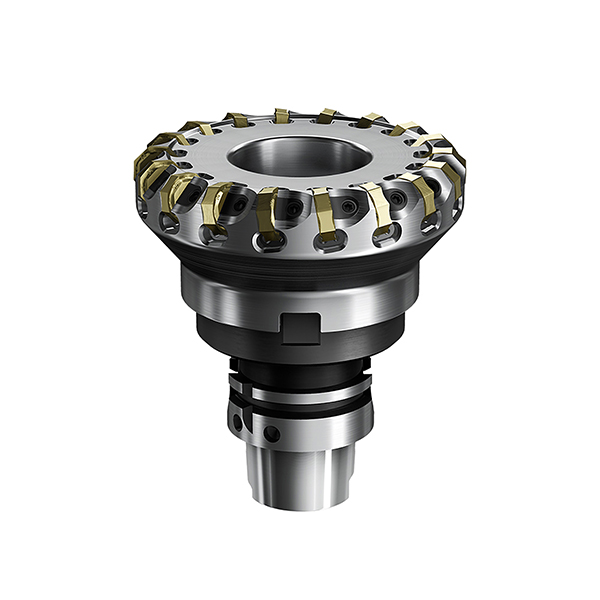
The new MaxiMill 275 milling system from Ceratizit suits the rough machining of high-alloy stainless and refractory steels, materials often found in the manufacture of turbocharger housings and exhaust manifolds. Ceratizit’s MaxiMill 275 face milling system is suitable for processing flat surfaces on these components. The tool is robust in its construction and design, with a maximum number of indexable inserts for efficient machining. Inserts are ground all around to ensure a smooth milling action, high-quality surfaces, long tool life and high efficiency.
The face milling of turbocharger components presents huge challenges for cutting tools due to the demanding nature of the material – often refractory cast steel containing niobium. In addition, the features of turbocharger housings and exhaust manifolds frequently create insecure machining conditions, bringing a requirement for tool stability so that it cuts effectively and achieves the necessary quality.
“Our development team began the process by designing the cutter body to be extremely stable and have low vibration,” says Detlef Erdei, application manager automotive at Ceratizit. “We were then able to optimise the number of cutting edges based on the diameter.”
This work resulted in the largest MaxiMill 275 with 125 mm diameter featuring 18 teeth, while the smaller 63, 80 and 100 mm diameter variants have 7, 10 and 14 teeth respectively.
The Ceratizit development team paid particular attention to the accuracy of the insert seat, which keeps the indexable insert firmly and precisely in place using a wedge clamp.
Ceratizit’s indexable inserts have also been refined thanks to the use of a special cutting material for the highest thermo-mechanical demands. Furthermore, a positive geometry with a 20° rake angle enables the inserts to cut effectively and guarantee a smooth machining action.
For further information
www.ceratizit.com















